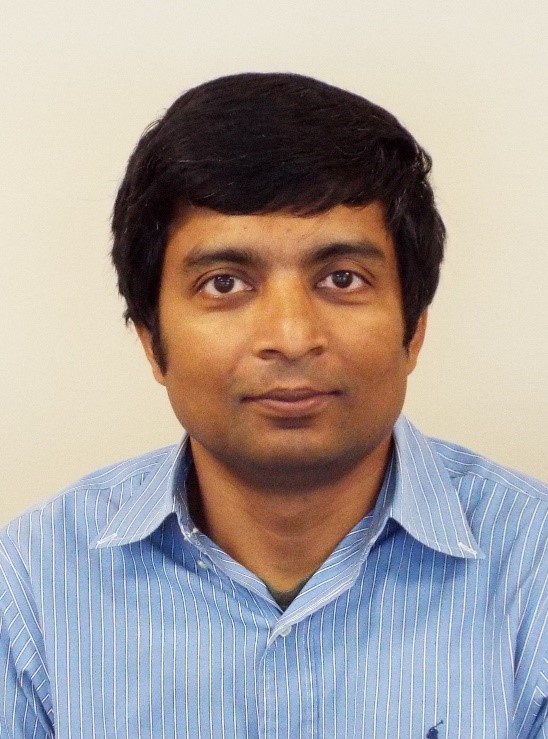1st Keynote Speaker

Latifur Khan, PhD
University of Texas at Dallas, USA
Professor, Department of Computer Science
Fellow of IEEE, BCS, IET
Title: Deep Learning Methods for Improving Event Extraction on Political and Social Science Studies
Abstract:
Political and social scholars increasingly rely on event coders, which are automated systems that extract structured event representations from news articles, in order to monitor, analyze and predict conflicts and
affairs involving political entities across the globe.
However, the existing event coders rest on outdated pattern matching techniques, relying on large manually maintained dictionaries composed of lexico-syntactic patterns designed for capturing conflict events. Apart
from the high costs, time and specialized knowledge required to update and expand such dictionaries, these techniques do not support event extraction on multilingual corpus. As a consequence, the application of
existing systems often yields low-recall results and imposes limitations when working with sources coming from different countries and languages.
In this talk, we propose deep-learning based frameworks to obtain state-of-the-art results for extracting structured events from natural language text in political and social sciences domains. We do so by exploring
three main directions: (i) automatically extending the external dictionaries and knowledge bases utilized in the current event coders through knowledge extraction techniques; (ii) formulating the event coding task
as a classification problem and proposing a supervised deep learning model to solve it; and (iii) developing an innovative deep neural network design by combining state-of-the-art language representation models
with multi-task learning technique to efficiently extract events in a structured format from multilingual corpus. We will demonstrate the superiority of our approaches through conducting extensive experiments on
real-world multilingual corpora based on political science and conflict domains.
*This work is funded by NSF, and NSA. The work is in collaboration with Dr. Patrick Brandt and Dr. Jennifer Holmes, School of Economic, Political and Policy Sciences, UT Dallas.
Bio: Dr. Latifur Khan is a full Professor (tenured) in the Computer Science department at the University of Texas at Dallas, USA. Dr. Khan is an ACM Distinguished Scientist and received IEEE Big Data Security Senior Research Award, in May 2019, and Fellow of SIRI (Society of Information Reuse and Integration) award in Aug, 2018. He has received prestigious awards including the IEEE Technical Achievement Award for Intelligence and Security Informatics, IEEE Big Data Security Award and IBM Faculty Award (research) in 2016. He has published over 300 papers in premier journals such as VLDB, Journal of Web Semantics, IEEE TDKE, IEEE TDSC, IEEE TSMC, and AI Research and in prestigious conferences such as AAAI, IJCAI, ACM WWW, CIKM, ICDE, ACM GIS, IEEE ICDM, IEEE BigData, ECML/PKDD, PAKDD, ACM Multimedia, ICWC, ACM SACMAT, IEEE ICSC, IEEE Cloud and INFOCOM. In addition, He has been invited to give keynotes and invited talks at a number of conferences hosted by IEEE and ACM. His research area focuses on big data management and analytics, data mining and its application over cyber security, complex data management including geo-spatial data and multimedia data. Dr. Khan research has been supported by grants from NSF, NIH, the Air Force Office of Scientific Research (AFOSR), DOE, NSA, IBM and HPE.
2nd Keynote Speaker

Prof. Ruqian Lu
Chinese Academy of Sciences, China
中国科学院院士
Title: From Big Data to Big Knowledge
——A Selective Retrospection and Perspective
Abstract:
It was in the thirty years ago that Michael Cox and David Ellsworth presented the seminal talk "Application controlled demand paging for out of core visualization" at the 8th IEEE visualization conference, where a new concept 'Big Data' was coined which raised a warm echo from the academic as well as the business society. It has become a hot topic of papers and talks since then. But there wasn't a concrete definition of this concept until the second decade of this century when experts found the well-known 3V, 4V and 5V definitions for Big Data. It is interesting enough that a further concept has been proposed in 2010, yet before the birth of these nV models. It’s called Big Knowledge. People talked about this new concept and were eagerly finding ways of mining Big Knowledge from Big Data. But similar as the situation after birth of Big Data concepts , no concrete definition was given for Big Knowledge. It was only in 2015 that Xindong Wu et al. proposed the HACE model for Big Data and also the Big Data Knowledge Engineering concept, where a three steps model of Big Data to Big Knowledge transformation was described. Inspired by Wu's work, we proposed a 10 MC model for Big Knowledge, Big Knowledge System and Big Knowledge Engineering in a preliminary work published in 2018 2019. In this talk I will demonstrate some thoughts of our further study on Big Knowledge, including its development, construction, modeling, computation, languages, supporting platforms, etc.
Bio: Prof. Ruqian Lu is a research professor of the Academy of Mathematics and Systems Science, Chinese Academy of Sciences. He is a fellow of the Chinese Academy of Science. His research interests include artificial intelligence, knowledge engineering and knowledge based software engineering.

